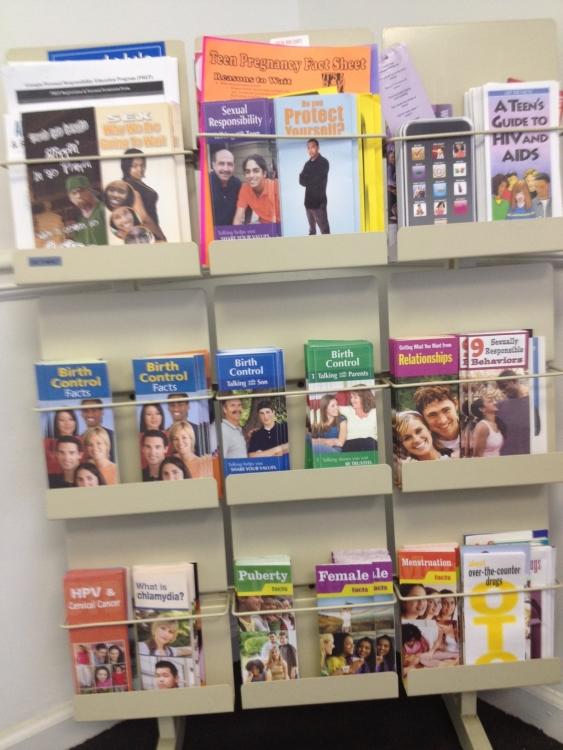
Section Branding
Header Content
Teen Birth Rates Still High
Primary Content

For the third straight year, teen birth rates are falling in many states, including Georgia. The numbers come from a new report by the Centers for Disease Control and Prevention in Atlanta. But the trend is not spreading to many rural counties, and programs created to address the problem have been cut.
It’s late afternoon at the Macon Teen Scene. Thirty kids sit at several round tables laughing and eating pizza. They’re here learning about topics typically reserved for adults.
“How many kids in your grade, what percentage would you say are having sex? Probably 80 or 90% at my school. I say 45%......30%.”
Elise Moreman, Jordan Russell, and Martinique Pearson are all in the 8th grade. Some of the kids in the room are older like 17 year-old senior Cora Berry who’s been coming here for five years. She says their instructor; Miss Hicks speaks in direct terms about sex and consequences.
“If you have sex you’re going to get STD’s, you can get STD’s. You can end up pregnant. That’s what actually got my attention. She’s actually blunt and honest about it.”
The state established 30 teen centers like this one in 1997 to combat high teen pregnancy rates. But in December the state Division of Public Health ended funding for all of them as part of state budget cuts. This building will close, but today the kids are visiting.
Valerie Hicks with the North Central Health District runs the teen program. She says she’s shocked at how little kids know.
“Children are getting pregnant mostly because of ignorance. We do not have enough education in school systems about sex. We do not have enough education in the homes about sex.”
Hicks says most school systems, including Bibb County, offer abstinence education but little else.
On average 41 out of every 1,000 teenage girls in Georgia has a baby. But in Bibb County that number is nearly 60 out of 1,000. And it’s even higher in Middle Georgia’s Hancock, Putnam and Jasper counties.
Hicks says some kids get pregnant because they don’t know enough about their bodies, others aren’t careful, and some think of a baby as a way to gain independence.
“Maybe we shouldn’t….I don’t know…..What’s the worst that could happen? (Music describe split screen what’s going on".
Educating teenagers about the realities of teen parenthood is the goal of a new ad campaign. This television ad features a split screen. One side shows two teen parents -- dropping out of school, changing diapers, and working menial jobs. On the other they’re shown graduating, starting college and hanging out with friends. The tag line says …
”Your future is important….plan first.”
David Harvey is the director of the North Central Health District, which is organizing the campaign. He says it also features billboards placed near high schools.
“The thing we do with our commercial is to show that you have choices. But understand that there are consequences to every choice. For everything you gain by having a baby you lose the opportunity to do other things.”
Back at the teen center, 17 year-old Cora Berry has made her choice to attend college in the fall.
“Most of the kids are doing it because everybody else is doing it. They’re doing it because they like the way it feels. But, they don’t understand the impact and they don’t understand that no, this is for grown people. It’s not for us.”
The state will continue to offer free and confidential birth control to kids through its health districts. Teen births cost the state nearly a half-billion dollars a year.
Tags: U.S. Centers for Disease Control and Prevention, Macon, Josephine Bennett, North Central Health District, teen birth rates, teen pregnancy prevention
Bottom Content

